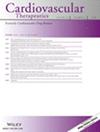Optimization of Clinical Trial Design and Decision-Making for Heart Failure with Preserved Ejection Fraction (HFpEF): A Meta-Analysis Based on a Placebo Response Model
Abstract
Objective
The aim of this study was to establish a placebo response model for efficacy indicators in heart failure with preserved ejection fraction (HFpEF) clinical trials, facilitating sample size estimation and trial optimization.
Methods
PubMed, EMBASE, and Cochrane Library databases were searched systematically for placebo-controlled trials of HFpEF up to May 26, 2024. Using model-based meta-analysis (MBMA), we analyzed cardiovascular death or heart failure hospitalization, cardiovascular death, heart failure hospitalization, all causes of death, and changes from baseline in the 6-min walk distance (6MWD) of the placebo group. The final model simulated the placebo effect distribution for these indicators under varying scenarios.
Results
A total of 29 studies and 14,302 participants were analyzed. A log-normal risk function was developed to describe four event rate indicators, and typical event rates for the placebo group over 6 years were simulated. After 1 year, rates for cardiovascular death or heart failure hospitalization (composite event), heart failure hospitalization, all causes of death, and cardiovascular death were 11.1%, 10.5%, 2.91%, and 2.33%, respectively. We used a linear model to describe the time–effect relationship of the change value of change from baseline in 6MWD, revealing typical changes at 1, 3, and 6 months as 1.47, 4.76, and 9.57 m, respectively. These values indicated that using the composite event as criteria could reduce the sample size by 500–12,000 cases, while 548 cases were sufficient for changes in 6MWD. The placebo effect model was also used as an external control in evaluating Sacubitril/Valsartan and exercise training efficacy.
Conclusion
This placebo response model provides essential support for sample size estimation, trial optimization, and drug efficacy evaluation in future HFpEF clinical trials.


 求助内容:
求助内容: 应助结果提醒方式:
应助结果提醒方式:


